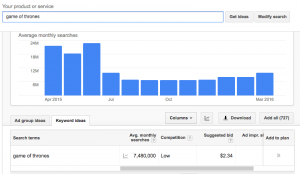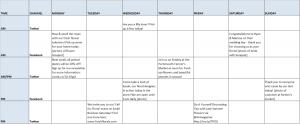By Emily Guy Birken
A sudden loss of income can happen to anyone at any time.
For example, there is no end in sight for the ongoing strike by the Writers Guild of America (WGA) and the Screen Actors Guild (SAG-AFTRA). In mid-July, Deadline quoted an unnamed studio executive who said, “the endgame is to allow things to drag on until union members start losing their apartments and losing their houses.”
With only 11.3% of American workers represented by a union, most of us will never walk a picket line—but that doesn’t mean we aren’t vulnerable to some kind of indefinite income loss.
Whether you are facing a strike, a furlough, disability, or another unexpected crisis, there are a number of financial strategies that can help you pull through to the other side. Here’s what you need to know.
calculate your bare-minimum budget
If you haven’t done so before, now is the time to sit down and figure out your baseline monthly expenses. These are the expenditures that are essential for maintaining your life, such as rent or mortgage payment, utility bills, groceries, transportation, and child care.
Generally, this is a relatively easy number to calculate. Start with your fixed expenses, like your rent and child care, and estimate your fluctuating expenses like groceries and utility bills, by calculating the average cost over the past six to 12 months.
The number you come up with is your bare minimum monthly budget, and it gives you a framework for figuring out how to live sustainably while your income is paused.
call your creditors
If you are carrying credit card debt, student loans, or other debts, contact your creditors to find out if there are ways to pause payments or reduce your monthly payment requirements during the period of income loss.
While this will generally increase the amount you owe over time, it can give you the breathing room you need in the moment, and reduce your bare-minimum monthly budget number.
compare your savings to your needs
Assuming you have savings set aside, you can compare it to your monthly minimum number to determine how many months you can afford to go without your income.
In an ideal world, you will have an emergency fund equal to three- to six-months’ worth of living expenses. That should help you feel more confident about your income loss, since you know you can weather quite a long period without it.
Unfortunately, 52% of Americans don’t have an emergency fund that robust, according to Bankrate’s 2023 report on American savings. But that is no reason to despair—because whether you have a well-endowed fund or not, your goal is to boost your savings even while your income is kaput.
Beef up your savings
When it becomes clear that you will be without income for a sustained period, make a plan to regularly add to your savings. Because beefing up your savings increases the time you can live without an income.
For instance, you might make a list of things you’re willing to sell and create a schedule for selling them. Having a schedule gives you more time to get the best prices for your items. It also can provide you with a sense of security about where next month’s money will come from because you have a plan in place.
Taking an unrelated part-time job, finding a sharing economy side hustle, or selling your services are also great ways to keep a little money coming in while you’re waiting for your primary income.
The long haul
A loss of income can certainly be demoralizing, especially if you have no idea when to expect its return. But calculating the minimum you need to maintain your lifestyle can help you feel more in control. From there, you can ask for some breathing room from your creditors, then determine how far your current savings will carry you. To make the process sustainable, you simply need to make a plan for how you will beef up your savings.
All this together creates a blueprint for surviving and thriving through income loss, even if it stretches on for a long time.
Emily Guy Birken is a Milwaukee-based personal finance writer. Her books include The 5 Years Before You Retire, Choose Your Retirement, Making Social Security Work for You, and End Financial Stress Now.
(1)








